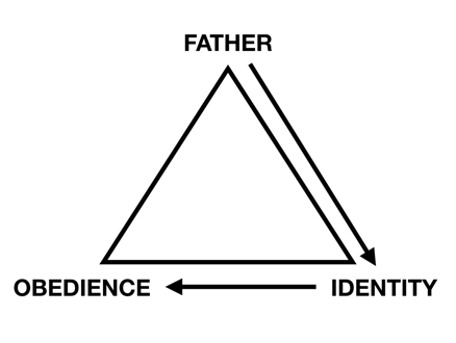I. EVANGELISM IS LIKE SOWING SEED (2 Corinthians 9:6)
- Sowing must be done in abundance
- Sow the Gospel, Sow Love, Sow Compassion, Sow Friendship
II. WHAT IS RELATIONAL EVANGELISM?
- Definition: Relational evangelism is the process of sharing the Gospel through building genuine relationships with others. It involves meeting people where they are in life, caring about their needs, and establishing trust so that spiritual conversations flow naturally.
- Long-Term Impact: Relational evangelism aims at long-term engagement that transforms hearts and lives. As people encounter the love of Christ through your words and actions, they become more open to hearing the message of the Gospel.
III. BIBLICAL FOUNDATIONS FOR RELATIONAL EVANGELISM
- Jesus’ Example of Relational Evangelism:
- The Woman at the Well (John 4:1-26): Jesus took time to build a relationship with the Samaritan woman at the well. He started by addressing her physical need (water) and then transitioned to her deeper spiritual need. He treated her with respect and dignity, even though she was marginalized in society.
- Zacchaeus (Luke 19:1-10): Jesus initiated a personal encounter with Zacchaeus, a tax collector despised by others. He invited Himself into his home, building trust and demonstrating love, which led to his repentance and transformation.
- Discipleship Model: Jesus spent years with His disciples, investing in them personally. He built deep relationships through shared experiences, meals, and conversations, showing that evangelism and disciple-making happen best within close relational contexts.
- Paul’s Example of Relational Evangelism:
- Paul in Athens (Acts 17:16-34): Paul built connections with the people of Athens by first observing their culture and then engaging them in a respectful and intellectual conversation about their beliefs. He used their altar to the “unknown god” as a starting point to introduce the message of Jesus.
IV. THE HEART OF RELATIONAL EVANGELISM: LOVE AND COMPASSION
- Evangelism as an Expression of Love
- The Greatest Commandment: Jesus commanded us to “love the Lord your God with all your heart and with all your soul and with all your mind” and to “love your neighbor as yourself” (Matthew 22:37-39). Relational evangelism is rooted in this command—loving others enough to share the hope we have in Christ.
- Compassion Before Conversion: The focus of relational evangelism is on demonstrating Christ’s love, whether or not the person responds immediately. By genuinely loving and serving people, we reflect Jesus’ heart and trust the Holy Spirit to work in their lives over time.
- Building Trust Through Service: One of the key ways to build relationships is through service. As we meet physical, emotional, or relational needs, we build credibility and show the love of Christ in action. This opens doors for deeper spiritual conversations.
- Relational Evangelism and Hospitality
- The Power of Hospitality: Hospitality is a powerful tool for relational evangelism. Inviting people into your home for a meal, coffee, or fellowship creates a space where trust can be built. Jesus often used meals to foster relationships (Luke 19:5-6, John 21:12).
- Creating a Welcoming Environment: In a world that is often disconnected, offering genuine hospitality creates opportunities for people to feel loved and valued. In this environment, spiritual conversations can arise naturally.
- Empathy and Active Listening
- The Power of Listening: One of the most powerful ways to show love is to listen. People long to be heard and understood. By actively listening to someone’s story, struggles, and questions, you build trust and earn the right to speak into their life.
- Ask Open-Ended Questions: Rather than launching into a spiritual conversation, begin by asking open-ended questions that allow the other person to share. Questions like “How has your spiritual journey been?” or “What do you think about God?” invite people to open up without feeling pressured.
V. PRACTICAL STEPS FOR RELATIONAL EVANGELISM
- Step 1: Start with Prayer
- Pray for Open Doors: Ask God to open your eyes to opportunities for relational evangelism in your everyday life. Pray for divine appointments—moments where He guides you to people who are ready to hear the Gospel.
- Pray for Specific People: Make a list of people in your life—family members, friends, neighbors, coworkers—whom God has placed in your path. Pray for their hearts to be softened and for opportunities to share the love of Jesus with them.
- Step 2: Build Genuine Relationships
- Invest in People: Take time to build relationships with people, especially those outside the church. Go beyond surface-level interactions by taking a genuine interest in their lives—know their stories, challenges, and hopes.
- Be Present and Intentional: Look for opportunities to connect with people in your day-to-day life. This could be through attending community events, inviting a coworker for lunch, or simply being available to listen when someone needs to talk.
Exercise: Set a goal to have at least one intentional conversation with a nonbeliever each week. Start by asking about their interests, family, or current challenges, and let the conversation flow naturally.
- Step 3: Meet Felt Needs
- Serve Others in Practical Ways: Relational evangelism often begins with meeting people’s practical needs. Offer help when you see a need—whether it’s helping a neighbor move, watching their kids, or bringing them a meal during a difficult time.
- Building Trust Through Service: People are more open to hearing about your faith when they see that you genuinely care about them as individuals, not just as “conversion projects.”
- Exercise: Identify one person in your life who has a practical need and find a way to serve them this week. This act of kindness will help build trust and create a space for spiritual conversations.
- Step 4: Share Your Story
- Your Testimony is Powerful: People may not be open to hearing a sermon or theological argument, but they will be interested in your personal story. Sharing how Jesus has impacted your life is a powerful way to introduce the Gospel in a relatable way.
- 3-Minute Testimony: Prepare a short version of your testimony that you can share in everyday conversations. Focus on these three key points:
- Before: What was your life like before Jesus?
- Encounter: How did you come to know Jesus?
- After: How has your life changed since then?
- Invitation: After your testimony, invite a response from them to ask questions or learn more about beginning a relationship with God.
Exercise: Practice sharing your 3-minute testimony with a friend. Ensure that it’s concise, clear, and relatable. Then (crucial) invite a response.
- Step 5: Share God’s Story
- The Gospel in Simple Terms: When sharing the Gospel, keep it simple. Use a clear, concise explanation that connects with the person’s current experiences or questions. Avoid using religious jargon that may confuse or alienate them.
- The Gospel (1 Corinthians 15:1-8)
- Christ was born
- Christ died for our sins
- He was buried
- He was raised
- He appeared and is returning again
VI. HOW TO TRANSITION FROM NATURAL TO SPIRITUAL CONVERSATIONS
- Start with Common Ground
- Natural Entry Points: Look for natural points of connection that can lead to spiritual conversations. For example, if someone shares about a personal struggle, you can respond by saying, “I’ve found that my faith in God really helps me through difficult times. Would you like to hear more?”
- Bridge Building: Share your own experiences in a way that connects with the person’s current situation. For example, if they’re feeling anxious, you can share how your faith gives you peace in the midst of uncertainty.
- Inviting Deeper Conversations
- Ask for Permission: Instead of forcing a conversation, ask if they would like to explore spiritual topics. For example, “Would you be interested in hearing more about how Jesus has changed my life?” or “Could we explore what the Bible says about peace together?”
- Respect Boundaries: If someone isn’t ready for a spiritual conversation, respect their boundaries but continue to be a friend. You can still pray for them and trust that God will open the door.
VII. HANDLING OBJECTIONS AND QUESTIONS
- Expect Questions and Objections
- Many people have honest questions or objections to the Christian faith. See these moments as opportunities for deeper conversations. Questions can open doors to discuss the heart of the Gospel.
- Common Objections:
- “How can a good God allow suffering?”
- “Isn’t Christianity just one of many paths to God?”
- “How can I trust the Bible?”
- Respond with Grace and Truth
- Stay Calm and Respectful: When objections arise, listen carefully and acknowledge the validity of the person’s concerns. Don’t feel pressured to have all the answers. Instead, respond with humility and a willingness to explore the answers together.
- Point to Jesus: Always bring the conversation back to Jesus. Rather than getting bogged down in debates, focus on who Jesus is, what He has done, and how He offers hope and redemption.
- Offer to Explore Answers Together: If someone raises a difficult question, invite them to explore the Bible with you to find the answers. For example, “That’s a great question. Let’s look at what the Bible says about suffering and see if we can find some answers together.”
VIII. PRACTICAL EXERCISES FOR RELATIONAL EVANGELISM
- Serve and Connect Activity:
- Find a Way to Serve: Identify one practical way you can serve someone in your community this week. Use this as an opportunity to build trust and create space for spiritual conversations.
- Reflection: After serving, reflect on how the act of service deepened your relationship with the person and if any spiritual conversations emerged.
- Spiritual Conversations Role Play:
- Practice Conversations: In a small group setting, role-play transitioning from a natural conversation to a spiritual one. Practice sharing your testimony, asking open-ended questions, and responding to objections. Receive feedback on how to improve your approach.
IX. CONCLUSION: THE LONG-TERM IMPACT OF RELATIONAL EVANGELISM
- Trust the Holy Spirit: Relational evangelism requires patience and trust. It’s important to remember that we plant and water seeds, but God gives the growth (1 Corinthians 3:6-7). Pray continuously for the people you are engaging and trust that the Holy Spirit is working in their hearts.
- Making Disciples, Not Just Converts: Relational evangelism is about more than just leading people to make a one-time decision. It’s about walking with them in their faith journey, discipling them, and helping them become disciple-makers who will share the Gospel with others.
- Stay Committed to Relationships: Relational evangelism often takes time. Stay committed to building relationships, even if you don’t see immediate results. Continue to love, serve, and share, knowing that God is at work.


